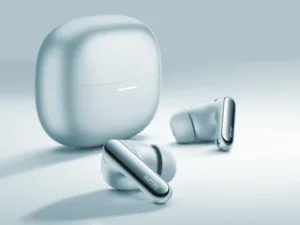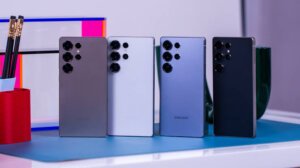The competition between iOS vs Android has been ongoing for more than a decade and with the changing markets as well as the available technologies both operating systems have adopted changes to enable them to serve clients better. In the course of the year 2024, the platform of both iOS and Android evolves and radically enhances its functions. But which OS Reigns Supreme? It is now time to discuss new changes between iOS vs. Android and how both companies are different or similar in terms of different factors.

iOS vs. Android in 2024
When it comes to comparison between iOS vs. Android in 2024, here’s what you should take into consideration.
- User Interface and Experience
When it comes to iOS vs. Android in 2024 user experience is a very important factor to note.
iOS 17
The latest release of Apple being the iOS 17 retains the company’s focus on a minimalistic interface on the gadgets. Notable features include:
- Refined Widgets: The widgets can now be available and can be made fully dynamic and offer more function in the home screen.
- Enhanced Privacy Controls: New privacy reports and, on average, more detailed permission pop-ups help users manage their data more effectively.
- Dynamic Island Expansion: Dynamic Island was first introduced in iOS 16 and now it is even more in sync with applications providing context aware information and quick actions.
Android 14
Android 14 focuses on flexibility that is possible for customers. Key highlights are:
- Material You Enhancements: Android’s dynamic theming has been extended and improved to ensure that it is possible to make much more detailed and personalized changes.
- Smart Home Integration: Chromecast works better with other smart home gadgets and Google Assistant is more powerful.
- Privacy Dashboard: Improved and redesigned privacy dashboard that shows the user all the applications that are using the data and when that data is being used.
- Customization and Flexibility
iOS 17
Customization has been historically limited on iOS as compared to Android. However, iOS 17 continues to make strides in this area:
- Lock Screen Customization: Luckily, many of the widgets, wallpapers, and styles that existed before the arrival of lock screens can be applied to the lock screens.
- Focus Modes: Features such as Focus modes gives users the ability to manage their notifications and layout of home screen according to context (for instance, work context or personal context).
Android 14
Android remains the king of customization:
- Home Screen Layouts: Customers can modify home screens to a great extent with help of different launchers, widgets, and themes.
- Automation with Tasker: Android has specific automation apps as Tasker which allows users to automate their process and set up automation rules.
- App Shortcuts: App shortcuts are now improved to help the users to open or perform particular features of the application on the home screen.
- Ecosystem Integration
iOS 17
Apple’s ecosystem is a key strength:
- Seamless Integration: Products like iPhone, iPad, Mac, Apple Watch and AirPods are integrated with each other making all the products’ experiences cohesive.
- Universal Control: A feature generally whereby one set of peripherals is used to operate several Apple devices such as using a Mac keyboard and mouse to operate an iPad.
- Handoff and Continuity: Enlargeability features which might refer to the ability of a user to initiate a particular task on one device and then complete the same on another device.
Android 14
Android’s ecosystem is more fragmented but still robust:
- Google Services: Integrating closely with other Google services such as Google Photos, Google Drive, Google Assistant, etc.
- Cross-Device Features: Better integration with other Google products such as Chrome OS and the recently released Wear OS but this again can be much less smooth than Apple ecosystem.
- Smart Home Control: Good compatibility across all smart gadgets through the Google Home application.
Read Also: Exciting New SmartPhones to Be Launched in August 2024: What to Expect
- About App Store and Quality of the Apps
iOS17
The App Store continues to be a strong point for iOS:
- Quality Control: Apple is very selective in its approvals and that requires app developers to undergo a long and thorough process of scrutiny to have their apps accepted and this will sometimes create a long lag time in the approval process.
- Exclusive Apps: Occasionally certain applications and their updates are initially released for iOS mainly because it represents a large and solvent group of users and steady platform’s performance.
- App Privacy Labels: The apps designed for iOS platforms are notable for the detailed indications of the kind of data that the corresponding application collects and their utilization.
Android 14
The Google Play Store offers a vast selection but with some caveats:
- Greater Variety: The Play Store contains more apps for its store in total; this is because Android has many more users, and the type of devices they use come in many forms.
- Flexibility for Developers: Lax app submission policies that are in place to let more app’s in but what you get is lower quality or even insecure apps.
- Third-Party App Stores: Android allows multi store installation or multiple app stores, which essentially means that the users have far more choices in terms of where they get their applications from, albeit with considerable risks.
- Security and Privacy
iOS 17
Apple places a high emphasis on security and privacy:
- End-to-End Encryption: S. M. S., FaceTiming, and other services which are essential need to have strong encryption.
- Privacy Features: Attempts such as App Tracking Transparency, Mail Privacy Protection, new privacy reports offer value to users in terms of transparency and interaction.
- Regular Updates: IOS devices in turn get frequent and timely updates on the security to all the devices that support it eliminating vulnerabilities.
Android 14
Google has made significant strides in improving Android’s security:
- Google Play Protect: Presents constant searching of other applications and gadgets for any form of prohibited behavior.
- Scoped Storage: More control over information storage and retrieval that reduces applications’ permissions to specific data, thus protecting user data.
- Frequent Updates: Android updates put in place are less standardized across device manufacturers due to the influences of manufactures and carriers though with Project Treble, the update roll out and availability has been made more efficient.
- Hardware Integration and Innovation
iOS 17
Apple’s control over both hardware and software allows for deep integration:
- A17 Bionic Chip: The newest chip is the most productive and at the same time possesses low power consumption.
- ProMotion Display: Higher refresh rates are smoother, and the responsiveness is also improved.
- Advanced Camera Systems: Facilities such as ProRAW, Cinematic, and better night mode boost the iPhone camera features.
Android 14
Android benefits from a wide range of hardware options from various manufacturers:
- Diverse Hardware: Android can be further found on an extremely wide range of devices starting with low-end devices and ending with cutting-edge high-end devices.
- Custom Chips: Companies such as Google using Tensor and Samsung using Exynos are now designing their specific chips to rank the best and bring the improved features.
- Foldables and Beyond: Today, Android dominates the most innovative solutions like foldable phones, dual-screen devices, rollable displays.
- Voice Assistants
Choosing voice assistant between iOS vs. Android in 2024. Here is something to help you.
iOS 17
- Siri Improvements: Updates enhance the reliability of Siri and increase its compatibility with Apple services; however, Siri’s efficiency is still weaker than that of competitors in some ways.
Android 14
- Google Assistant: Google Assistant is known to be one of the best voice assistants due to its enhanced natural language processing as well as integration with the other Google applications.
Which One is Right for You?
Maximizing the use of mobile devices is in most people’s hands because of the iOS device vs Android device though it depends on what one prefers most. If one looks for integration, privacy and is ready to shell out a few extra dollars then iOS could be a better option. However, if you like to have more unique options, opportunity to configure something depending on your’ll, Android may be more attractive.
In conclusion, to make the right decision when it comes to iOS vs. Android, it is possible to state that it is better to try both operating systems if it is possible in any way. A large number of shops allow customers to get a firsthand feel of the various gadgets.
Conclusion
When it comes to deciding between iOS vs. Android in the year 2024, the main focus comes to the person’s identity and further requirements.
iOS 17 excels in:
- Seamless ecosystem integration.
- Privacy and security measures that are rather effective.
- Busy and relevant user base, great global app store releases consistency.
Android 14 shines in:
- Customization and flexibility.
- Diverse hardware options.
- Superior voice assistant capabilities.
In the end, both operating systems strive to provide more and more features while focusing on aspects appealing to one side of user characteristics. Whether you want a clean environment and an emphasis on security (iOS) or variety and customization (Android), 2024’s options make sure you will find the device which is ideal for you.




